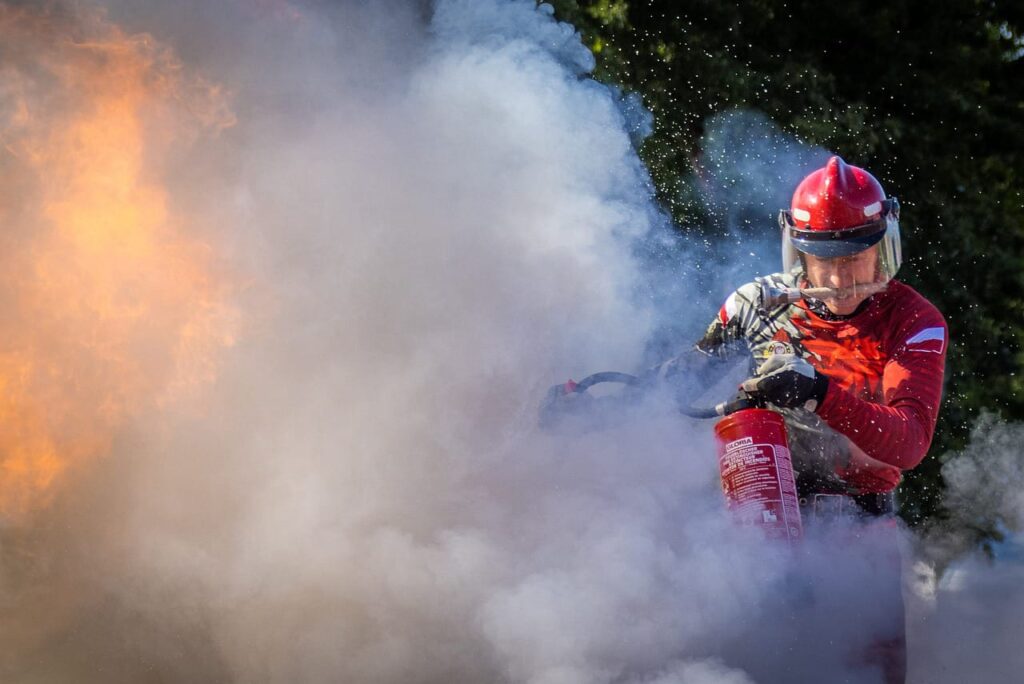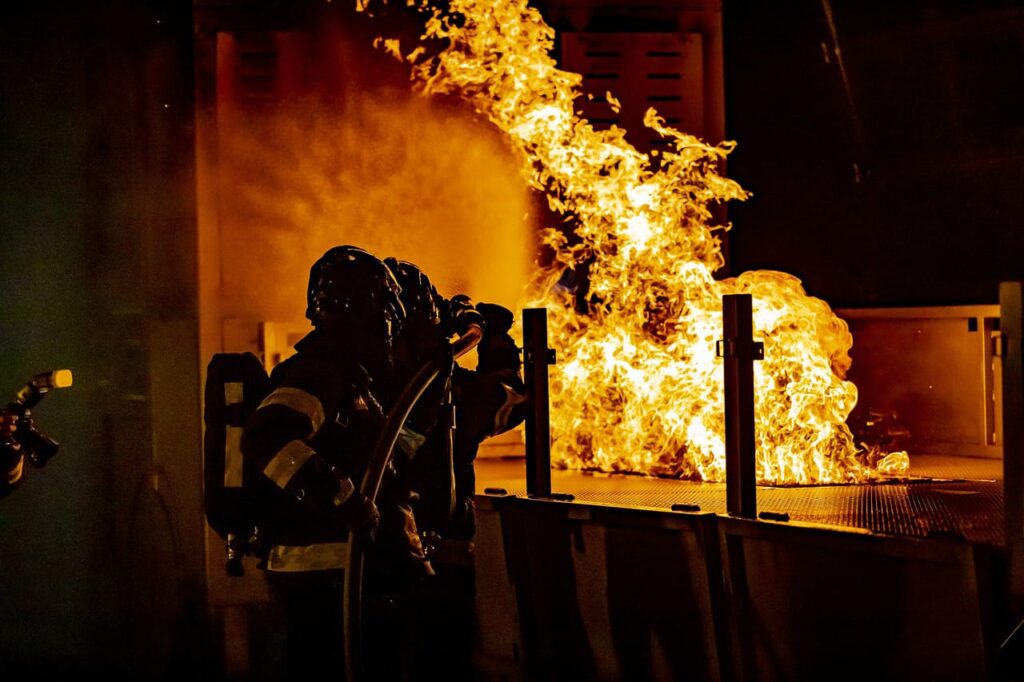How to Prevent Top 5 Common Fire Sprinkler System Problems
Fire sprinkler systems are critical to any industrial or commercial building’s safety plan. They act as mitigating fire damage, a first line of defense, and potentially saving lives and property. However, even the most well-designed systems can face issues if you don’t perform regular fire sprinkler maintenance. Here are five common fire sprinkler system problems that facility managers and business owners should be aware of—and, when needed, how to prevent them to ensure the system is always ready.
Commercial Fire Sprinkler Problems :
- Corrosion and Rust in Sprinkler Pipes
- The Problem: Corrosion is one of the leading issues in fire sprinkler systems, especially in poorly or older maintained systems. Over time, the pipes can lead to rust, corrosion, and exposure to oxygen and moisture. This weakens the pipes and can reduce, leak, or block the system’s effectiveness during a fire.
- How to Prevent It: Regular inspections are the key to preventing corrosion in fire sprinkler systems. Scheduling professional inspections will help identify early signs of corrosion and allow for timely repairs or pipe replacements. Additionally, installing nitrogen generators can help displace oxygen in the system, slowing corrosion. Get more information on protecting your system from corrosion.
- Improper Sprinkler Head Clearance
- The Problem: Many storage or equipment placements in commercial and industrial settings can block or limit the effectiveness of sprinkler heads. Even complete failure of the system to douse flames effectively or Improper clearance can result in uneven water distribution.
- How to Prevent It: Proper operation requires adequate clearance around each sprinkler head. Regular audits of the workspace layout, especially in warehouses and storage areas, can ensure that this clearance is maintained. Periodically remind staff and contractors of the importance of keeping sprinkler heads unobstructed.
- Leaks in Fire Sprinkler System
- The Problem: Leaks can compromise a commercial fire sprinkler system’s effectiveness. They can result from damaged seals, corroded pipes, or physical impact. Over time, small leaks can increase the risk of system failure during an emergency and water damage to your property.
How to Prevent It: Regular fire sprinkler testing of your system is essential to catch, maintain, and fix leaks early. Where qualified professionals check for leaks and test water pressure, Consider implementing a quarterly inspection plan, and ensure that all connections are secure. Address any costlier repairs down the road and leaks promptly to avoid more enormous.
- Clogged or Dirty Sprinkler Heads
- The Problem: Dust, dirt, or debris can accumulate on sprinkler heads where particles and pollutants are common, particularly in industrial settings. Clogged sprinkler heads can reduce water flow or cause uneven spray patterns, affecting the system’s ability to contain a fire quickly.
How to Prevent It: Routine cleaning of sprinkler heads is crucial to ensure they remain unobstructed and ready to operate effectively. Consider a more frequent cleaning schedule in dusty or dirty environments, like factories or warehouses; having a certified technician conduct an annual inspection to assess is also a good idea.
- False Alarms and Accidental Activations
- The Problem:
- False alarms and accidental activations can cause unnecessary business interruptions and costly clean-ups. Factors like extreme temperatures, mechanical malfunctions, or human error can trigger these incidents.
How to Prevent It:
To reduce the risk of false alarms, calibrate your commercial fire sprinkler system’s sensors and controls, schedule regular testing to avoid accidental activations, and Ensure employees are trained to handle the system properly. In high-traffic areas, Installing protective covers over fire sprinkler heads can also help prevent accidental damage.
The Importance of Regular Sprinkler Maintenance
A reliable fire sprinkler system and regular fire sprinkler maintenance and inspections are the cornerstones. A professional fire protection company understands the importance of keeping your system in top shape to protect your property, business, and people. Before they become significant problems, ensure your system is always up to code and ready to perform in an emergency. Their certified technicians are trained to identify potential issues.
Beach Lake Sprinkler Can Help
At Beach Lake Sprinkler, we specialize in installing, servicing, and designing fire sprinkler systems for commercial and industrial applications. With the latest NFPA standards, our team is up-to-date in ensuring your system complies with all local and national codes. Our goal is to provide you with the highest quality fire protection service at a competitive price, From addressing corrosion to preventing leaks,
For over twenty years, businesses across Northern Pennsylvania, Southern New York, and Central Florida have trusted us to protect their assets and employees. Until a minor issue becomes a significant safety concern, please Don’t wait to learn more about our preventive commercial fire sprinkler maintenance plans. Contact us today to schedule a system inspection.
Preventing Fire Sprinkler System Problems is Protecting Business
you’re not just complying with safety standards; by proactively addressing common fire sprinkler issues, you’re investing in your business’s long-term safety and security. Regular preventive fire sprinkler maintenance, inspections, and employee training are essential steps every commercial or industrial facility should take.
Fire Safety Strategie
Strategies for Implementing Fire Safety
Implementing practical fire safety tips and ensuring the safety of individuals’ properties and strategies is crucial to minimize the risk of fires. Here are some steps you can take:
Use a fire safety checklist — A checklist addressing potential fire hazards within your premises can help you systematically assess.
Regularly maintain and inspect fire safety equipment —in case of an emergency, It’s essential to have good working fire safety equipment at all times. Equipment establishments have for this include the following:
- Fire alarms
- Fire doors
- Fire extinguishers
- alarms and Smoke detectors
- Sprinkler systems
- Emergency lights
- Fire escape ladders
- Fire-resistant clothing and gear
Create a fire safety plan — easy-to-communicate fire safety and emergency response plan and Develop a thorough that includes detailed evacuation routes, designated assembly points, and marked emergency exits,
Conduct fire drills — identify points for improvement, and Regular fire drills help evaluate the effectiveness of your procedures.
Educate and train—Regular and Effective fire safety training helps prepare individuals to prevent, respond to, and mitigate fire incidents with the knowledge and confidence necessary to handle fire emergencies.
Collaborate with authorities: Work closely with local fire inspectors, fire departments, and fire safety regulations authorities to ensure compliance. You can also seek their guidance for safety assessments and obtaining necessary permits and inspections,
Create your fire safety checklist
customizable templates and Build from scratch or choose from our collection of free,
Browse fire safety checklists.


